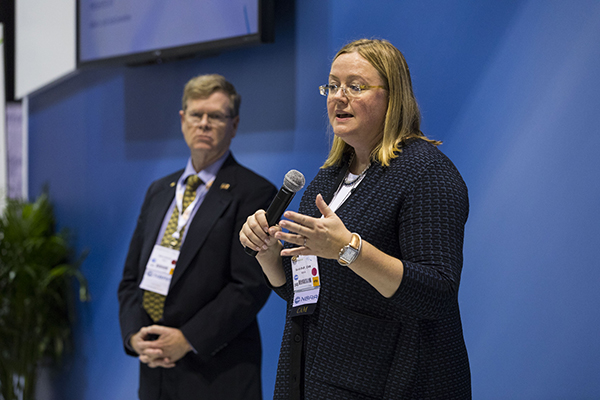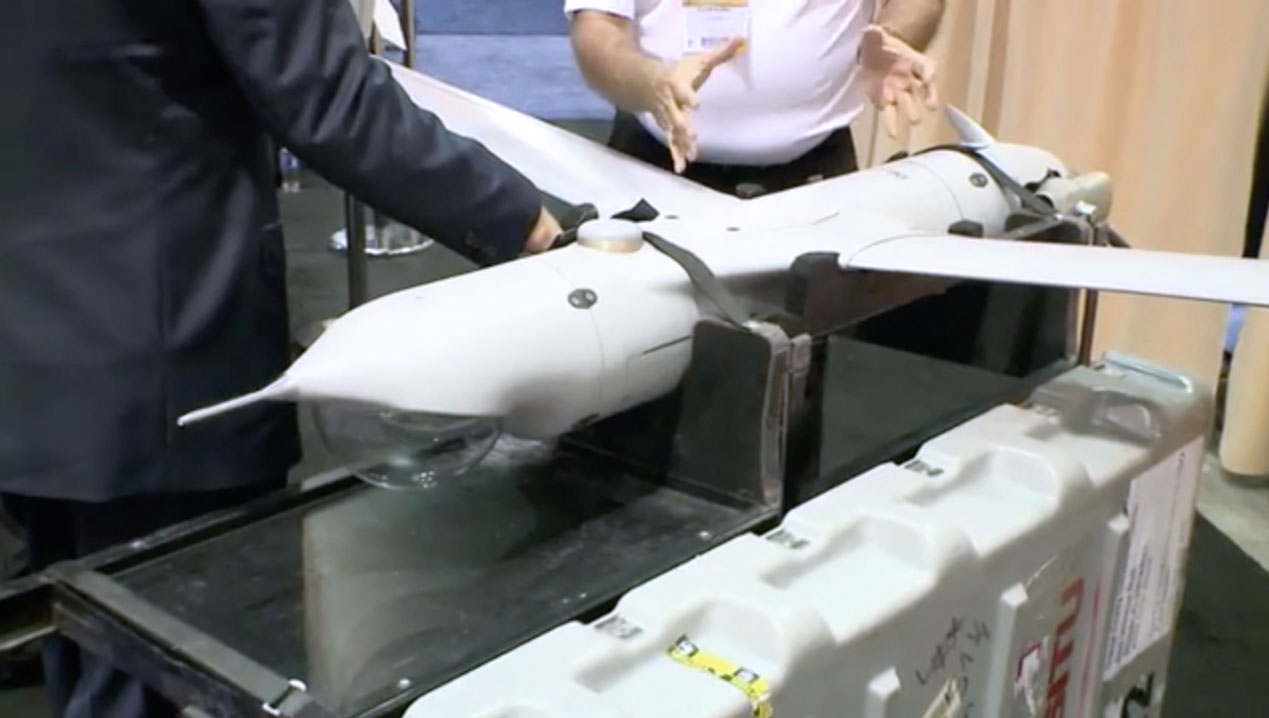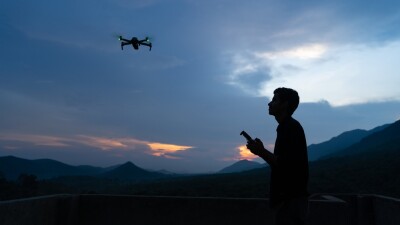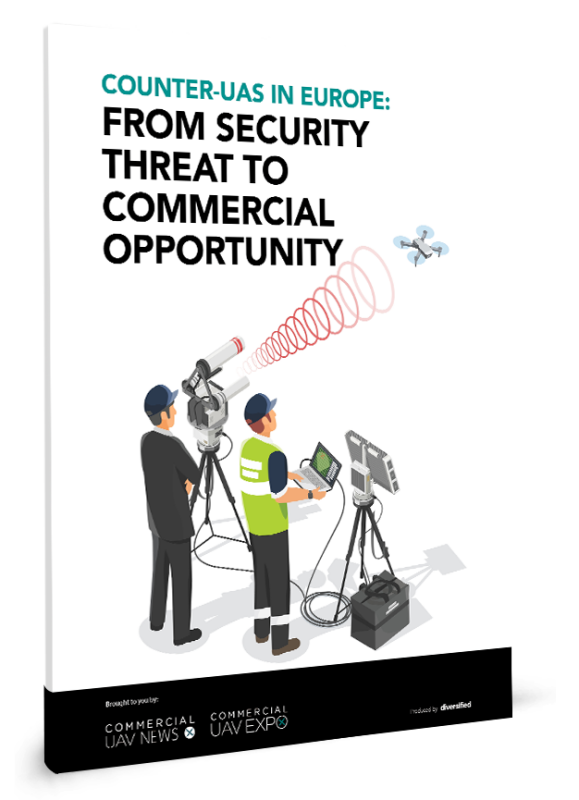The definition of commercial usage in manned aviation is abundantly clear in the current FAA rules and regulations, but when it comes to unmanned aerial vehicles or UAVs the situation is not as well understood. One of the main concerns of manned aviation organizations these days is to help the drone industry define the roles more clearly so there’s no confusion when it comes to enforcing the law covering activities for hire and remuneration.
One of the organizations playing a key role in this clarification effort is the National Business Aviation Association (
NBAA), the largest business aviation advocacy group in the USA. It has over 11,000 members and holds annual gatherings that are must-attend events for commercial aircraft operators and aviation legal experts.

Sarah Wolf speaking about drones at the NBAA-BACE Fall show
Recently we read an official commentary by Sarah Wolf, NBAA’s Senior Manager for Security and Facilitation regarding the difference between commercial and non-commercial usage of drones. We found the clarification really important and reached out to Ms. Wolf for an exclusive interview to dig into this definition and also to find out more about NBAA and its plans to enter the unmanned aviation arena.
Juan: Can you elaborate on the definition of commercial and non-commercial uses?
Sarah: Every for-hire drone operation is considered commercial under Part 107, but also any not-for-hire drone operation in support of a business falls into the commercial category as well.
Juan: In other words, a home inspector flying a store-bought UAS to determine the condition of a roof is a commercial operator, as is a landscaper photographing jobs with a drone to use in advertising their business?
Sarah: Correct; if the drone’s mission serves any business purpose at all, that’s commercial under Part 107, even if no money changes hands to pay for the flight.
Juan: Why is NBAA suddenly interested in this clarification?
Sarah: Well, it’s not so sudden considering that for the past four years NBAA has been conducting education sessions about unmanned aviation in its Fall event and we have added a committee focused on UAVs. We have seen a rise in the number of NBAA members adding UAVs to their operations and that has created the need for further education as part of our mission to evolve with the industry.
Juan: What is the biggest difference you can outline between the way manned and unmanned platforms are perceived by aircraft operators, such as NBAA members?
Sarah: In our industry, operators of manned aircraft are trying to incorporate UAVs into their safety procedures, maintenance schedules and management structures. Among newer operators adopting UAVs, there might be a perception that because these platforms are less expensive and somewhat “disposable” they might not require so much management, but we hope that attitude would change as manned and unmanned aircraft are used side-by-side and managed accordingly.
Juan: Is NBAA actively pursuing commercial unmanned operators to become members?
Sarah: We are definitely looking for ways to be useful, as an association, to unmanned operators so they see the benefit of becoming members and join. A large part of our mission is educational and we believe that drone operations will play a key role in the future of many of our members, therefore we are spending quite a bit of time helping develop standards and educational programs to better serve the community. We’ve been happy to see how the concept of Safety Management Systems (SMS) is now permeating the lexicon of unmanned operators and how safety is not a secondary element in the implementation or addition of unmanned programs.
Juan: So it is possible for commercial unmanned operators to join NBAA today?
Sarah: Yes, of course! Current membership rules allow drone operators to join NBAA and enjoy the benefits of a growing industry focusing mainly on safe skies for all, manned and unmanned.
Juan: Do you believe that current legislation prevents these two worlds from merging?
Sarah: No, because people are now legally allowed to operate drones in the National Airspace System (NAS). We are in a transition period as these platforms enter the NAS, and NBAA is interested in supporting that transition and serving as a resource to regulators and commercial drone operators.















Comments